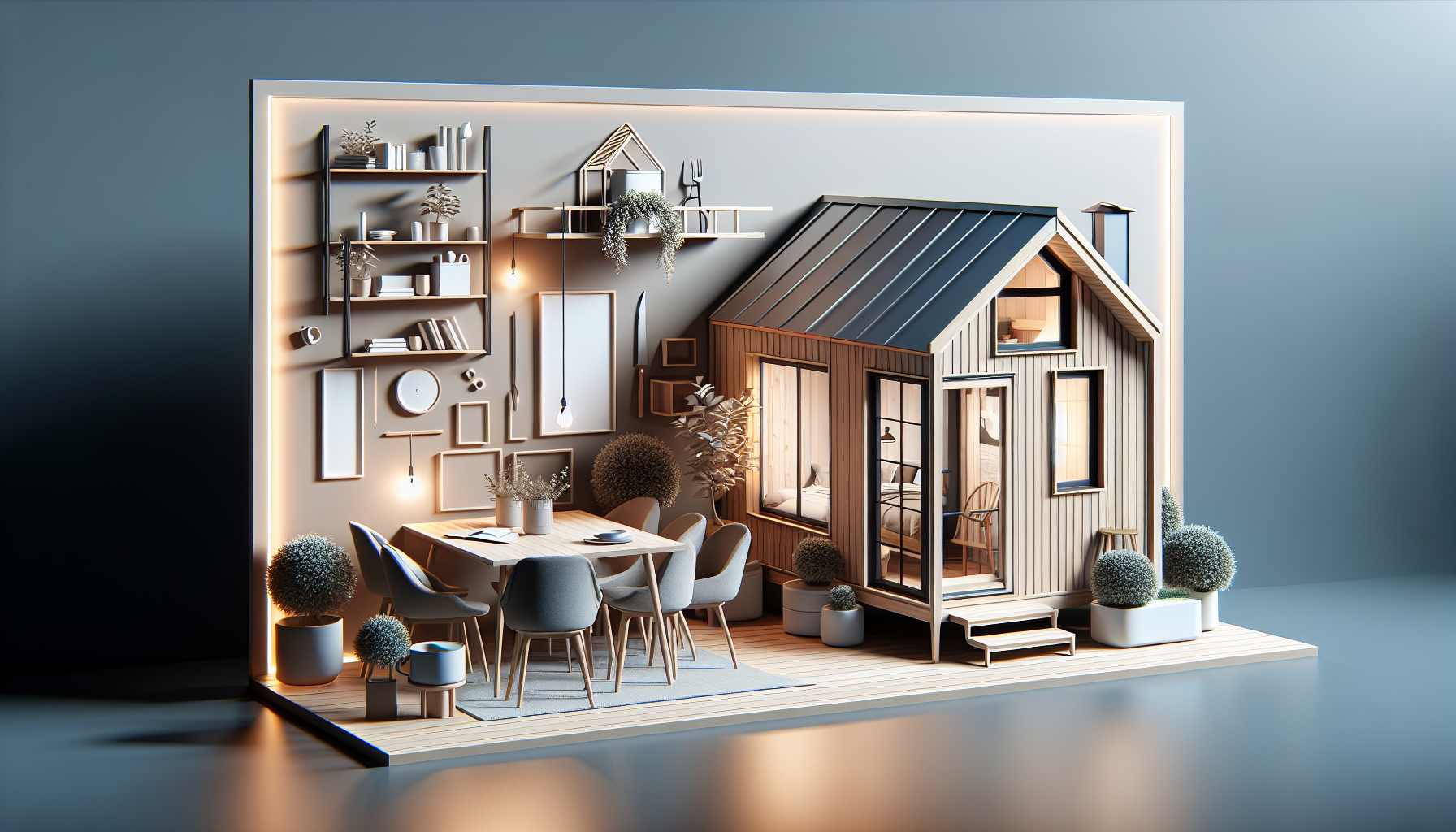Top 10 Benefits of Living in a Tiny House

Top 10 Benefits of Living in a Tiny House
Living in a tiny house can offer a range of benefits that align with modern lifestyle choices. In this article, we will explore the top 10 benefits of living in a tiny house, helping you understand why this minimalist lifestyle is gaining popularity. From financial savings to enhanced community connections, discover how tiny living can improve your life.

Introduction to Tiny Living
A tiny house is defined as a small dwelling, typically under 400 square feet, designed to maximize space and efficiency. The Tiny House Movement has gained traction in recent years, driven by a desire for simpler living, sustainability, and financial freedom. This movement encourages individuals to downsize their living spaces and embrace a minimalist lifestyle.
The concept of tiny living is not just about reducing square footage; it’s about rethinking priorities and valuing experiences over material possessions. As more people make the switch to tiny homes, it’s essential to understand the numerous benefits this lifestyle offers.

Benefit 1: Financial Savings
One of the most significant advantages of living in a tiny house is the financial savings. Tiny homes typically have lower mortgage costs compared to traditional houses, allowing homeowners to pay off their homes quicker and reduce their overall debt burden. Utility costs are also significantly lower, as tiny houses require less energy to heat and cool.
By reducing these financial burdens, homeowners can redirect their funds toward experiences and adventures, creating a more fulfilling lifestyle.
Benefit 2: Minimalist Lifestyle
The shift to tiny living naturally fosters a minimalist lifestyle. With limited space, residents are encouraged to declutter and simplify their lives. This approach not only reduces physical possessions but also mental clutter, leading to a more organized and peaceful environment.
Furthermore, tiny living emphasizes valuing experiences over material goods. People often find themselves investing in travel, hobbies, and relationships instead of accumulating furniture or gadgets.
Overall, adopting a minimalist lifestyle cultivates a sense of freedom and clarity.
Benefit 3: Environmental Impact
Living in a tiny house significantly reduces one’s carbon footprint. These homes use fewer resources for construction and maintenance, leading to a smaller environmental impact. Many tiny house owners also adopt sustainable living practices, such as using renewable energy sources and water-saving devices.
Additionally, tiny homes often encourage a lifestyle that is more in tune with nature, fostering a greater appreciation for the environment.
The commitment to environmental sustainability is a key reason many choose tiny living.
Benefit 4: Increased Mobility
Another compelling benefit of tiny living is increased mobility. Tiny houses are often built on trailers, making them easy to relocate. This mobility allows homeowners to explore new locations without the constraints of traditional real estate.
Additionally, the flexibility of tiny living opens up travel opportunities, as many tiny home owners take their houses on the road.
The ability to move freely is particularly appealing for individuals seeking adventure and new experiences.
Benefit 5: Customization and Creativity
Tiny houses offer unique opportunities for customization and creativity. Homeowners have the freedom to design their spaces according to their tastes and needs. This level of personalization fosters a sense of ownership and pride.
Moreover, many tiny house builders engage in DIY projects, allowing them to develop new skills while creating a home that reflects their personality.
Customization and creativity make tiny living a fulfilling experience.
Benefit 6: Stronger Community Connections
Living in a tiny house often leads to stronger community connections. Many tiny house communities foster a sense of camaraderie among residents who share similar values and lifestyles.
Engaging with like-minded individuals can enrich one’s social life and provide support networks.
These connections contribute to a more fulfilling social experience, enhancing overall quality of life.
Benefit 7: Enhanced Quality of Life
Living in a tiny house can dramatically enhance one’s quality of life. With fewer responsibilities related to home maintenance and finances, residents often experience less stress.
This newfound freedom translates to more leisure time and opportunities to pursue hobbies, leading to improved mental well-being.
Overall, tiny living can lead to a more fulfilling and balanced life.
Benefit 8: Efficient Use of Space
Tiny houses are designed for efficient use of space. Homeowners often implement smart storage solutions that maximize functionality while minimizing clutter.
Versatile designs allow for multi-purpose areas, making tiny homes practical for various lifestyles.
Efficient space utilization makes tiny living both practical and enjoyable.
Benefit 9: Connection to Nature
Tiny houses often promote a closer connection to nature. Many are situated in scenic locations, allowing residents to enjoy natural beauty right outside their doors.
Incorporating outdoor living spaces, such as patios or gardens, enhances this connection and encourages outdoor activities.
Such connections can lead to a more balanced and fulfilling lifestyle.
Benefit 10: Future-Proof Living
Tiny houses offer a future-proof living solution that can adapt to changing life circumstances. This flexibility makes tiny living ideal for individuals or families in transition.
Whether moving for work, scaling back, or seeking adventure, tiny homes can accommodate various lifestyles.
Future-proof living makes tiny houses a pragmatic choice for those seeking adaptability.
Conclusion
In summary, living in a tiny house offers numerous benefits, including financial savings, a minimalist lifestyle, and a smaller environmental impact. The lifestyle promotes community connections, enhanced quality of life, and efficient space usage, all while fostering creativity and adaptability.
As more individuals explore tiny living, the potential for a fulfilling and sustainable lifestyle grows. If you are considering a change, tiny living may be worth exploring!




